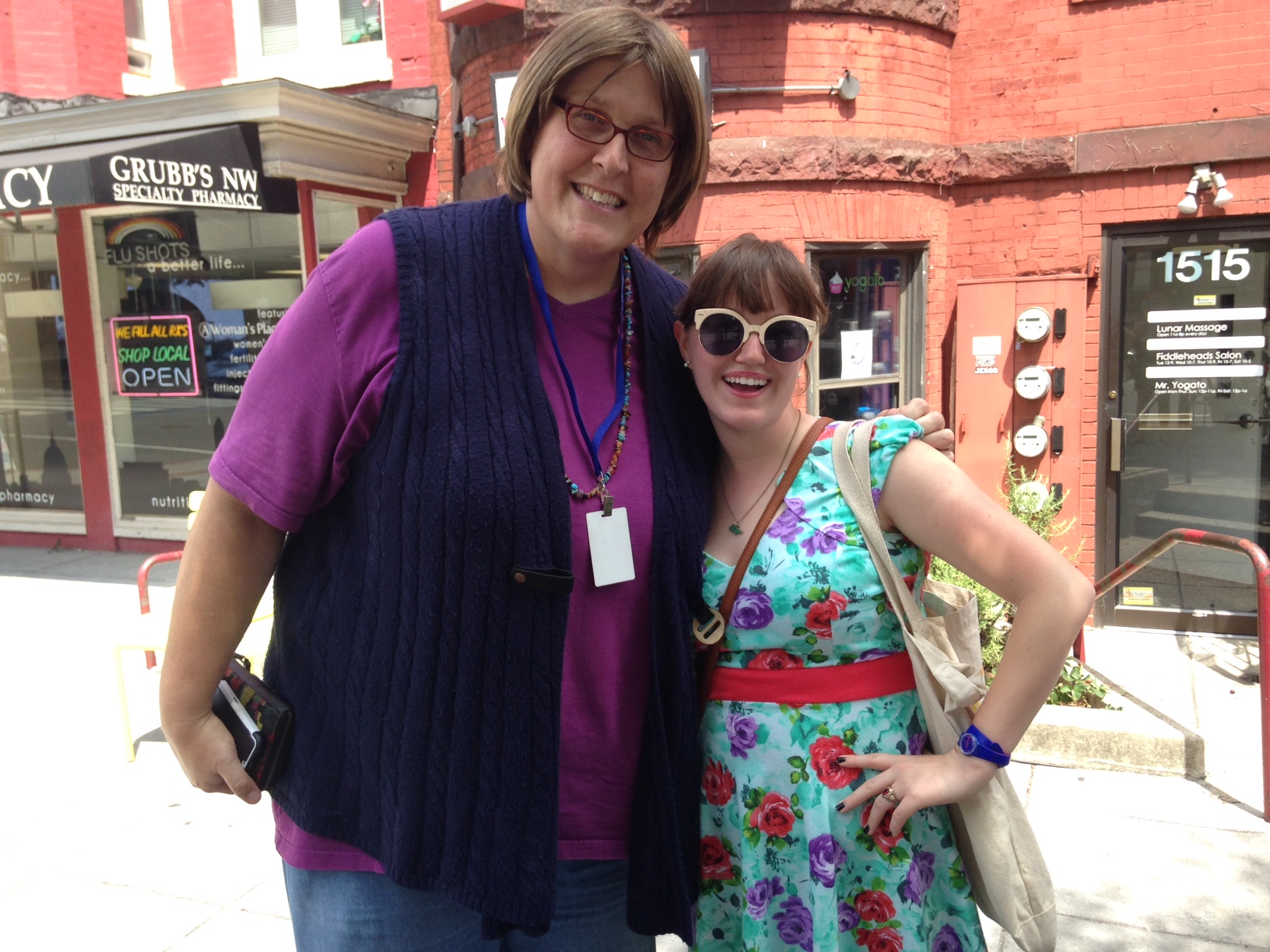Content Warning: Transphobia

One Friday afternoon saw me sitting down for lunch with the wonderful Paula Sophia Schonauer. She’s many things: trans* activist, former police officer, student, teacher, parent, spoken word poet. But above all else she is determined. This becomes quite apparent as I interviewed her about her life and identity.
Paula was born in Akron, Ohio to a working class, nuclear family. Her childhood indicated how much of a fighter she would become in more ways than one. The economic downturn hit her family hard, as her father was laid off multiple times and her mother had to get a job to support them. “Akron Ohio in the 70’s was like the Depression in a lot of ways.” She attended a private school run by the Lutheran Church- Missouri Synod. “The people, the teachers, the other students constantly reminded myself and my siblings that we were charity cases.” This adversity had a major impact on Paula, she described it as “the birth of my radicalism.”
Paula still tried to conform at first, even if she had her doubts. Sensing more to the story, I asked Paula what her first big rebellion was. Her response was that she had joined a street gang. She clarified that hers hadn’t been like the Bloods or the Crips. Apparently a movie called The Warriors came out in the late 70’s about street gangs in New York City. Soon little street gangs were cropping up around her neighborhood. “By then I was 12 years old. I was already very aware of my gender identity conflict and I was also very aware of how big I was.” Her gang was named the Lamp Avenue Champions. There was never an actual Lamp Avenue. Paula’s group had chilled underneath a bridge, where one of them had spray painted a lamp post. They had called that Lamp Avenue. The “Champions” had come from their love of Queen’s “We are the Champions.” She laughed at the irony of it. “I just think about it, and what we were trying to be and our favorite song was from a band called ‘Queen,’ whose lead singer was gay.”

Paula’s next move had been to join the military as a soldier in Desert Storm and Desert Shield. She had married and her son was born while she was overseas in Desert Storm. Paula didn’t want to miss her son growing up. She opted to move to Oklahoma City with her family when he was 1 year old rather than renew her contract. Her daughter was later born in that city. There, she became a police officer. “I still had this equation of masculinity equals being a warrior.” Paula was good at her job, too. But she knew something was missing from her work. “I got tired of the neighborhoods I patrol, when I drive down the street people scowling at the police.” She looked into community policing and started to get out of the car, “getting to know people and letting them get to know me.” She even developed a course in community policing that she taught at the police academy. Paula built bridges and earned the trust of the people in the neighborhood she patrolled. This would become evident once she transitioned.
Paula came out as transgender in November 2000, and transitioned “full-time” on September 27, 2001. The police department made things difficult for her, expecting her to resign. Even though she won “Officer of the Year” the month before she came out. She offered to spend some time working a desk job until people became used to her, but was refused. The top brass wanted her on the streets because they were counting on community backlash. If she couldn’t do her job on patrol, they would have cause to fire her. That’s not what happened. While on patrol, Paula ran into a woman, who said “Oh my God! It’s Halloween!” This was early in October. Paula had smiled and said no, that this was who she really was. The woman said, “Bless your heart,” and gave her a hug. Despite the fact that Paula had arrested both of her sons. While Paula’s fellow officers said she was an outrage in uniform, this woman showed Paula real compassion.

Paula retired after 22 years of policing to run for Oklahoma State House District 88. She lost by 22 votes, but didn’t let that stop her. She’s an activist and working for a masters degree in social work at the University of Oklahoma. Paula is also a spoken word artist, going as far as to compete at national poetry slams. “I was always an outsider with my gender identity issues, so I guess the gift of that is I look at things differently.” When I asked her what advice she would give to college students who are trans*, nonbinary, or genderfluid, Paula recalled the moments that made her feel unsafe at OU. “Demand respect, because you won’t get any without a demand. Expect to be safe, but prepare to feel uncomfortable. Because you will if you’re different. But don’t back down.” I asked Paula what advice she would give to any and all college students. “Use your time in college to really open your mind.” She stressed the importance of dialogue, and not living only in the echo chamber.
Lunch came to an end and we parted ways. I wasn’t able to include all the things we discussed in this blog. Paula has seen and done many, many things in her life. I am so glad I had the opportunity to talk with her. I got to share in her wealth of lived experiences, ranging from police car chases to running for office. She is a truly incredible person who has been many things: activist, student, police officer, parent, teacher, spoken word artist, among her other roles. But I think she is this above all else: she is a real champion.

